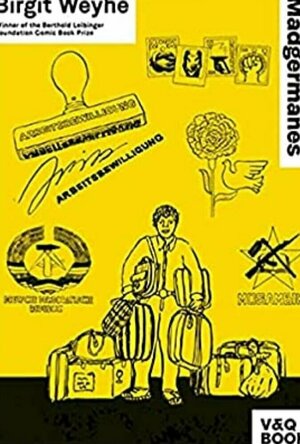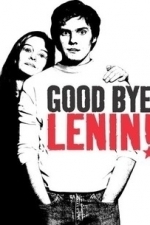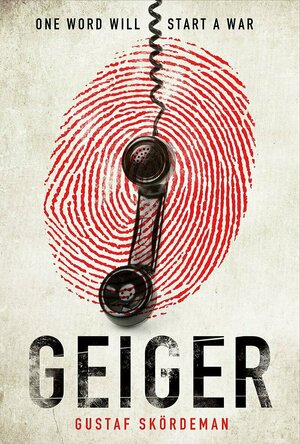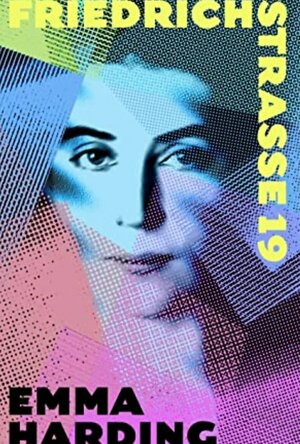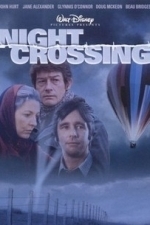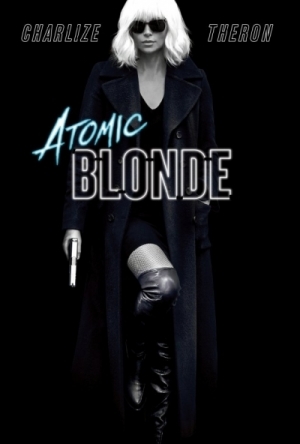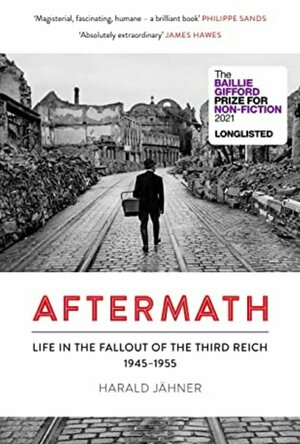Search
Search results
ClareR (6086 KP) rated Madgermanes in Books
Feb 20, 2022
This is a really interesting period of history (for me, anyway!) and I enjoyed finding out about the ‘Madgermanes” or the Mozambicans who went to work in East Germany. After the wall between East and West Germany was erected, East Germany realised that they’d lost a lot of their workers to the West. So East Germany chose Mozambique as a sister country, and workers were sent to the GDR with promises of education, good work and good wages. Whilst they did get some education (if they largely sorted it out for themselves), the work could be simple and repetitive. What’s more, they only received half of their wages. They never got the half that had been sent back to Mozambique for ‘safekeeping’.
Housing for these visiting workers was usually in basic hostels, shared rooms, and away from the East Germans. Mixing was discouraged, as were relationships. Pregnancies were either terminated or the woman was sent home.
The pictures in the book are a wonderful mix of African and European, and some really big feelings are clearly illustrated. I loved it. I’d be really interested to know how many Mozambicans were able to stay in Germany and become German citizens. The novel implies that life was difficult for those who returned to Mozambique, financially, socially and culturally.
It’s a fascinating read, and one I’d recommend.
Housing for these visiting workers was usually in basic hostels, shared rooms, and away from the East Germans. Mixing was discouraged, as were relationships. Pregnancies were either terminated or the woman was sent home.
The pictures in the book are a wonderful mix of African and European, and some really big feelings are clearly illustrated. I loved it. I’d be really interested to know how many Mozambicans were able to stay in Germany and become German citizens. The novel implies that life was difficult for those who returned to Mozambique, financially, socially and culturally.
It’s a fascinating read, and one I’d recommend.
Erika (17789 KP) rated Good Bye, Lenin! (2004) in Movies
Jan 29, 2018
The premise of this movie is fairly simple, the main character's mom comes out of a coma, East and West Germany have reunited, and this fact may kill his mother. The hoops he jumps through to keep his mother calm are hilarious, fake newscasts, radio, everything.
Not for me
When I read the synopsis I was really interested in this book. But when it arrived and I started to read it, it turned out to be different to how I expected.
I got to about halfway through and decided I didn't want to finish it. I didn't really engage with the characters, or the story.
It started off with a 70 year old Swedish woman shooting her 85 year old husband dead after a phone call which just gave the code word Geiger. Then she leaves. That is what grabbed me. But then the story goes into Cold War territory and the relationship between Sweden and East Germany. The husband was a famous children's television personality in his younger days and would hold parties at his home which famous people would attend, including other TV stars, business people and politicians. But was he a spy working for East Germany? Or for Sweden against East Germany? And why is his wife now going around shooting other people connected to him? Is she the spy? I'll never know, as I only got to page 203.
If anyone would like to tell me how it ends, feel free.
I got to about halfway through and decided I didn't want to finish it. I didn't really engage with the characters, or the story.
It started off with a 70 year old Swedish woman shooting her 85 year old husband dead after a phone call which just gave the code word Geiger. Then she leaves. That is what grabbed me. But then the story goes into Cold War territory and the relationship between Sweden and East Germany. The husband was a famous children's television personality in his younger days and would hold parties at his home which famous people would attend, including other TV stars, business people and politicians. But was he a spy working for East Germany? Or for Sweden against East Germany? And why is his wife now going around shooting other people connected to him? Is she the spy? I'll never know, as I only got to page 203.
If anyone would like to tell me how it ends, feel free.
ClareR (6086 KP) rated Friedrichstrasse 19 in Books
Jun 11, 2023
Friedrichstrasse 19 is 6 stories set in the same building over its lifetime. We see Berlin through the eyes of those that lived in the building between 1906 and 2019, and there are some serious historical moments as well as cultural highlights: a woman in the RAF (Rote Armee Fraktion) in 1986; a photographers apprentice in 1906; an unhappily married Jewish woman who meets an actress pre-WW2; the Berlin Airlift post WW2 era, when the actress is trying to find her Jewish lover (she knows there’s little chance); 1969 and a photographer finds a young GDR escapee and decides to help her; 2019, a divorcee originally from the East, who met her ex-husband on the night that the Wall fell.
All intriguing characters and stories that give a glimpse into urban life in Berlin, as well as its history. It probably helped that I was familiar with the history of Germany generally (thanks to a German degree many years ago!), and I make a point of reading fiction set in Germany when/ if I come across it. And this is a pleasure when I come across books like Friedrichstrasse 19!
All intriguing characters and stories that give a glimpse into urban life in Berlin, as well as its history. It probably helped that I was familiar with the history of Germany generally (thanks to a German degree many years ago!), and I make a point of reading fiction set in Germany when/ if I come across it. And this is a pleasure when I come across books like Friedrichstrasse 19!
Darren (1599 KP) rated Night Crossing (1982) in Movies
Jul 2, 2019
Story: Night Crossing starts as we go to East Germany in 1979, The Strelzyk family, Peter (Hurt), Doris (Alexander), Frank (D.McKeon) and Fitscher (K.McKeon) who are getting tired of not being able to go to the west side of Germany, one they see as fairer. The friendship between this family and the Wetzel’s Gunter (Bridges) and Petra (O’Connor) keeps them strong, while they see the friends trying to escape getting killed.
When Peter comes up with up the idea to build a balloon with Gunter to escape, it will mean working in secret because getting caught will only see him killed. When Gunter leaves for family reasons, Peter must keep the idea within the family for the hope for their future.
Characters – Peter is a father that has been living with his family in Eastern Germany, he is getting tired of the lack of change or unity with the Western side and decides he wants to risk his family’s life to escape, he plans to build a balloon which would fly over the borders in place. Doris is the wife of Peter, she is reluctant to help at first, but soon sees this being the only option. Gunter is the friend that wants to help build the balloon, only for his wife to push him into staying behind because of the young age of their children. Petra is Gunter’s wife that doesn’t want to risk their infant children with an escape plan so dangerous.
Performances – John Hurt in the leading role is the strongest member of the cast, he shows that even a common man can have the hope required for his character. Jane Alexander and Glynnis O’Connor are both fitting the wife type of role which doesn’t get much else to do. Beau Bridges completes the cast with a performance that shows just how young men would have been affected in this world.
Story – The story follows two families that work together to find a way to escape East Germany and get into West Germany in the late 70s, they must risk everything for this, which is failing would see them face certain death. this is a story of inspiration that showed us just how much people were willing to risk escaping a land they couldn’t live their natural life without being dictated too, it shows the patience to make it happen and how family can inspire you to risk everything.
Family/History – This might be classed as a family film that is because of the families involved in trying to make this high risk situation happen, the history of their escape is one that could inspire many who were trapped in the land.
Settings – The film is set in the harsh living conditions the families would have been living in and how secretive their plan would have been to make happen.
Scene of the Movie – Are we in the West?
That Moment That Annoyed Me – It could have been a lot darker.
Final Thoughts – This is an inspiration story of two family’s determination to make it out of a life which didn’t offer them a true future.
Overall: True story that shows bravery and inspiration.
When Peter comes up with up the idea to build a balloon with Gunter to escape, it will mean working in secret because getting caught will only see him killed. When Gunter leaves for family reasons, Peter must keep the idea within the family for the hope for their future.
Characters – Peter is a father that has been living with his family in Eastern Germany, he is getting tired of the lack of change or unity with the Western side and decides he wants to risk his family’s life to escape, he plans to build a balloon which would fly over the borders in place. Doris is the wife of Peter, she is reluctant to help at first, but soon sees this being the only option. Gunter is the friend that wants to help build the balloon, only for his wife to push him into staying behind because of the young age of their children. Petra is Gunter’s wife that doesn’t want to risk their infant children with an escape plan so dangerous.
Performances – John Hurt in the leading role is the strongest member of the cast, he shows that even a common man can have the hope required for his character. Jane Alexander and Glynnis O’Connor are both fitting the wife type of role which doesn’t get much else to do. Beau Bridges completes the cast with a performance that shows just how young men would have been affected in this world.
Story – The story follows two families that work together to find a way to escape East Germany and get into West Germany in the late 70s, they must risk everything for this, which is failing would see them face certain death. this is a story of inspiration that showed us just how much people were willing to risk escaping a land they couldn’t live their natural life without being dictated too, it shows the patience to make it happen and how family can inspire you to risk everything.
Family/History – This might be classed as a family film that is because of the families involved in trying to make this high risk situation happen, the history of their escape is one that could inspire many who were trapped in the land.
Settings – The film is set in the harsh living conditions the families would have been living in and how secretive their plan would have been to make happen.
Scene of the Movie – Are we in the West?
That Moment That Annoyed Me – It could have been a lot darker.
Final Thoughts – This is an inspiration story of two family’s determination to make it out of a life which didn’t offer them a true future.
Overall: True story that shows bravery and inspiration.
ClareR (6086 KP) rated The Man Who Saw Everything in Books
Oct 28, 2021
What can I say about The Man Who Saw Everything? Firstly, I enjoyed reading it. It certainly wasn’t predictable, and I had no idea how the book was going to go in either half. As I read on to the second half, it began to become a little clearer as to why that was, exactly. There is a reason why the main character, Saul Adler, slips around in time. And I can’t tell you why, because to do so will give away the whole book!
This is a book where time, sexuality and personality are all malleable and difficult to pin down - all at the same time. You don’t know what’s real, and what’s in the imagination. Past and present are portrayed not just in the ages of the main character, but also in the former East and West Germany and the old and new (post-Brexit) Europe.
I don’t think I’ll ever be able to properly explain this - even if I tried. I do know, however, that I really liked it.
This is a book where time, sexuality and personality are all malleable and difficult to pin down - all at the same time. You don’t know what’s real, and what’s in the imagination. Past and present are portrayed not just in the ages of the main character, but also in the former East and West Germany and the old and new (post-Brexit) Europe.
I don’t think I’ll ever be able to properly explain this - even if I tried. I do know, however, that I really liked it.
Beth Ditto recommended Nunsexmonkrick by Nina Hagen in Music (curated)
Gareth von Kallenbach (980 KP) rated Atomic Blonde (2017) in Movies
Jul 11, 2019
The beginning of the end of the Cold War,1989. East and West Germany still separated by more than just a wall. An MI6 agent sent to retrieve a knock list two weeks prior has been killed and the list is missing. It contains information on every agent for each agency who have representation in Berlin. MI6 sends in Lorraine Broughton (Charlize Theron), specialist in intelligence collection and hand to hand combat. She would have to work with the section chief David Percival (James McAvoy) to retrieve the list before it falls into the hands of the competition.
Lorraine’s fight scenes, carefully choreographed to deliver efficiency in movement where not one strike is wasted. The action sequences truly drives the pace of the storyline. one would think that this is just the average action film but it’s not. This film’s storyline has very good pacing although there are points of slight foreshadowing, but it keeps one guessing about peoples loyalties even after it is established…or is it?
Charlize plays Lorraine with the coolness on par with 007, but with a realistic enemy. McAvoy’s Percival is the agent that has spent so much time in Berlin where he has become entrenched in the role of a black-market trader so familiar with the east/west that he believes he knows how to run the game. He toggles back and forth from East to West like an eel slithering through the hands of fishermen.
We also see a few familiar faces playing key appointments in the spy game. Toby Jones as Eric Gray, Lorraine’s boss and John Goodman as Emmet Kurzfeld, the CIA attaché to this mission with MI6. Sofia Boutella, who we have seen in Kingsman and The Mummy plays Delphine Lasalle, the fledgling agent from France documenting Lorraine’s every move.
The film is set to the steady rhythm of 80’s electronic New Wave. The soundtrack in this movie does not function solely as accompaniment. Each scene is accentuated by songs carefully curated to enhance each moment as a supporting character.
Based on Antony Johnston’s 2012 Graphic Novel “The Coldest City” Director David Leitch (John Wick & Deadpool 2 ) gives us an ass kicking female protagonist that is clever, darkly witty and can take on pretty much anything that comes her way. The stunts are filmed with an experienced fluidity and the movements are crisp, definitely a benefit from Leitch’s stunt expertise.
So far, the summer blockbuster season can be named the point where female action heroes can hold the attention of the viewer, no longer seen as the frail victim or second fiddle to the man. She can take care of business and put the hurt on anyone that comes at her as well as share with the audience that she has emotional depth.
My attention was captured from the first shot to the ending credits.
Lorraine’s fight scenes, carefully choreographed to deliver efficiency in movement where not one strike is wasted. The action sequences truly drives the pace of the storyline. one would think that this is just the average action film but it’s not. This film’s storyline has very good pacing although there are points of slight foreshadowing, but it keeps one guessing about peoples loyalties even after it is established…or is it?
Charlize plays Lorraine with the coolness on par with 007, but with a realistic enemy. McAvoy’s Percival is the agent that has spent so much time in Berlin where he has become entrenched in the role of a black-market trader so familiar with the east/west that he believes he knows how to run the game. He toggles back and forth from East to West like an eel slithering through the hands of fishermen.
We also see a few familiar faces playing key appointments in the spy game. Toby Jones as Eric Gray, Lorraine’s boss and John Goodman as Emmet Kurzfeld, the CIA attaché to this mission with MI6. Sofia Boutella, who we have seen in Kingsman and The Mummy plays Delphine Lasalle, the fledgling agent from France documenting Lorraine’s every move.
The film is set to the steady rhythm of 80’s electronic New Wave. The soundtrack in this movie does not function solely as accompaniment. Each scene is accentuated by songs carefully curated to enhance each moment as a supporting character.
Based on Antony Johnston’s 2012 Graphic Novel “The Coldest City” Director David Leitch (John Wick & Deadpool 2 ) gives us an ass kicking female protagonist that is clever, darkly witty and can take on pretty much anything that comes her way. The stunts are filmed with an experienced fluidity and the movements are crisp, definitely a benefit from Leitch’s stunt expertise.
So far, the summer blockbuster season can be named the point where female action heroes can hold the attention of the viewer, no longer seen as the frail victim or second fiddle to the man. She can take care of business and put the hurt on anyone that comes at her as well as share with the audience that she has emotional depth.
My attention was captured from the first shot to the ending credits.
ClareR (6086 KP) rated Aftermath: Life in the Fallout of the Third Reich, 1945-1955 in Books
Feb 1, 2022
This is such an informative, interesting book about a period in German history that I know little about: 1945-1955. It shows that German cities were pretty much decimated by the end of the war, that ex-Nazi party members were forced to clean up the rubble and that most importantly, many Germans thought that they were hard done by, by the end of the war - their country in ruins, no industry and no food. But what’s most startling, is how quickly the German recovery was. Jähner states that this was in large part due to the return of the Germans who had been living in occupied countries.
The black market was also a huge earner for many German citizens: one teenager is described as having thousands of Marks worth of cigarettes in his house. Money was there to be made for the improvising, bold, German!
What probably resonated with me most, was the lot of the German woman. They had been expected to be the perfect German Female during National Socialism, then experienced a kind of social and sexual liberation after the end of the war. However, when their husbands and men returned from captivity (or just made their ways home), they found themselves being expected to revert to the stereotypical role of the housewife. But they wanted more. They wanted to continue in careers, they wanted equality, and they didn’t necessarily want to deal with broken, defeated husbands (as cruel as this may seem).
What really surprised me, was how was how former Nazi party members still worked in positions of influence, both politically and in industry - and this was the case in both East and West Germany. Even though the Allies made a point of ‘educating’ German citizens about the holocaust, National Socialists seemed to largely escape punishment and carried on with their lives. Their children may have had their doubts as to their parents innocence, and the real movement to ‘out’ the national guilt didn’t really get going until the 1960’s, but there was dissent in the 1950’s already.
I could go on. This is such an interesting book, and written so accessibly. It didn’t read at all like a dry history book, and the photos and posters from the time are well chosen and really add to the book as a whole. This isn’t just a history book for history buffs.
The black market was also a huge earner for many German citizens: one teenager is described as having thousands of Marks worth of cigarettes in his house. Money was there to be made for the improvising, bold, German!
What probably resonated with me most, was the lot of the German woman. They had been expected to be the perfect German Female during National Socialism, then experienced a kind of social and sexual liberation after the end of the war. However, when their husbands and men returned from captivity (or just made their ways home), they found themselves being expected to revert to the stereotypical role of the housewife. But they wanted more. They wanted to continue in careers, they wanted equality, and they didn’t necessarily want to deal with broken, defeated husbands (as cruel as this may seem).
What really surprised me, was how was how former Nazi party members still worked in positions of influence, both politically and in industry - and this was the case in both East and West Germany. Even though the Allies made a point of ‘educating’ German citizens about the holocaust, National Socialists seemed to largely escape punishment and carried on with their lives. Their children may have had their doubts as to their parents innocence, and the real movement to ‘out’ the national guilt didn’t really get going until the 1960’s, but there was dissent in the 1950’s already.
I could go on. This is such an interesting book, and written so accessibly. It didn’t read at all like a dry history book, and the photos and posters from the time are well chosen and really add to the book as a whole. This isn’t just a history book for history buffs.
